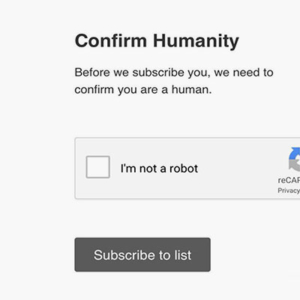Confirm Humanity: Why we should take this invitation literally. In our interpersonal relationships. Daily.
I am still surprised every time the request ‘confirm humanity’ pops up on my screen. Not quite sure how many years ago this screen command has found its way into our computer systems, it makes me think how far we sometimes – in everyday situations – distance ourselves from our human nature.
In the shallows of digital experience, a reminder like this certainly has its justification and very specific function. And I cannot help thinking of situations in our daily interpersonal encounters which would more than justify the exclamation ‘Confirm humanity!’ as well.
By way of example:
- when we face a difficult personal situation in our lives that may affect our activities at work – and we don’t say anything because we think that it is not professional to show emotions (and inadvertently assumed weakness).
- when we announce decisions without being transparent and explaining how and why we made them.
- when we communicate changes in the company without discussing how those changes will affect staff, ignoring their questions, doubts, fears.
- when we don’t ask questions, worrying to show lack of knowledge and assuming we should already know the answers.
- and even when we have to let someone go from our company. Is it really impossible to do this in an empathetic, humane way?
It is in fact the whole spectrum of human emotions that help us to connect with the people around us. Emotions – personally experienced ones as well as those generated in others – make the difference between a boss and a leader, between an example and a true role model – and they are the nuance between a parent and a mother or father.
How often and to what extent we ‘confirm humanity’ will very much depend on our role and the specific situation. Being human gives us the ability to ‘adjust the dose’ and the power to reflect and react accordingly – and I do not mean to use it in a manipulative way.
‘Confirming humanity’ needs awareness of our emotions, their acceptance – and action that is appropriate in any given situation.
Let’s be human beings first, then colleagues, then employees, then human resources, then human capital.
Let’s confirm humanity more often.




